Moderator of the Discussion, Dr. Nguyen Sy Dung said: Housing is not only an asset but also a right recognized by international law and Vietnamese law. Ensuring social security for the majority, including everyone having a place to live, living happily and peacefully with their family, is not only an economic goal but also a social goal, an important orientation that our country is aiming for. The Party and the State have made many efforts to ensure this basic right for every citizen. This is a strategic orientation of a humane nature, both meeting the essential needs of the people and promoting economic development.
However, the implementation of this goal is not without difficulties. In big cities and industrial zones such as Hanoi, Ho Chi Minh City, Binh Duong , Dong Nai, millions of workers, even civil servants, have difficulty accessing housing. With an average salary of about 10-13 million VND/person, while the price of mid-range and high-end housing ranges from 30-35 million VND/m², even up to 50 million VND/m², owning a standard house (priced at about 2.5 - 3 billion VND) becomes out of reach. It is estimated that only about 10% of civil servants, laborers, and workers in urban areas have access to housing.
Faced with this reality, the Party and the State have issued many policies, especially the Prime Minister is very interested in ensuring housing for the people. Although there has been strong development in the middle and high-end housing segment, providing social housing for the majority of low-income people is still a big challenge.
Despite many efforts, the development of social housing still needs to be continuously supplemented and improved to meet the demand. One of the important steps forward is that on May 29, 2025, the National Assembly passed Resolution 201/2025/QH15 on piloting a number of specific policies and mechanisms for social housing development and on February 27, 2025, Prime Minister Pham Minh Chinh signed Decision No. 444/QD-TTg assigning targets for completing social housing in 2025 and the following years until 2030 for localities to add to their socio-economic development targets. Accordingly, the social housing target that localities must complete in the 2025 - 2030 period is 995,445 apartments, this is an important target in concretizing Decision 338/QD-TTg dated April 3, 2023 of the Prime Minister approving the Project "Investing in the construction of at least 1 million social housing apartments for low-income people and industrial park workers in the 2021 - 2030 period".
However, there are still many challenges in terms of institutions, planning, land and financial resources. The implementation of the policy of housing construction and development requires great efforts from localities and solutions from the Central Government, especially the Resolution just passed by the National Assembly.
To have an overview of the policies, achievements, challenges and efforts in this field, the Government Electronic Information Portal organized a discussion on "Breakthrough in social housing development". This is an issue that the Prime Minister is very interested in and concerned about.
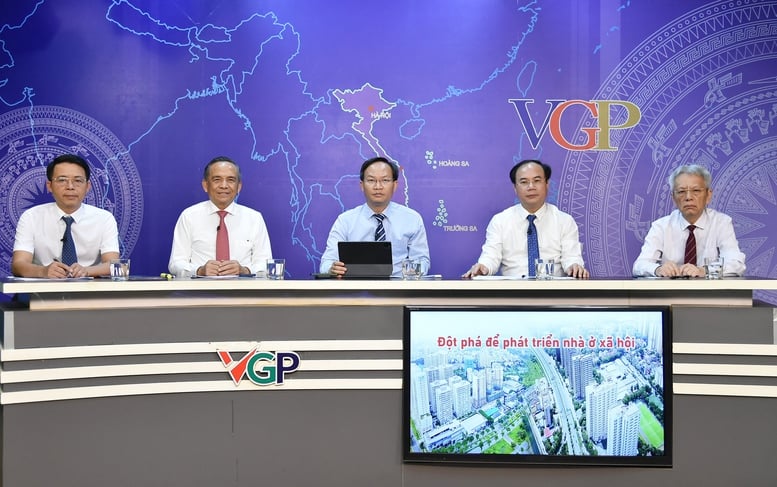
Guests attending the Dialogue (from right to left): Dr. Nguyen Si Dung, former Deputy Head of the National Assembly Office, coordinating the Dialogue program; Deputy Minister of Construction Nguyen Van Sinh; Vice Chairman of Bac Giang Provincial People's Committee Pham Van Thinh; Mr. Le Hoang Chau, Chairman of Ho Chi Minh City Real Estate Association; Mr. Pham Tien Dung - Chairman of the Board of Directors of Cat Tuong Joint Stock Company - Photo: VGP/Duong Tuan
Nationwide, there are 686 social housing projects implemented with 627,867 apartments.
Dr. Nguyen Si Dung: First, I would like to ask Deputy Minister of Construction Nguyen Van Sinh: The National Assembly has just passed Resolution 201/2025/QH15 on piloting a number of specific policies and mechanisms for the development of social housing. As a representative of the state management agency in the construction sector, can you analyze the significance and highlights of the Resolution and the expectations that the Resolution will bring in promoting and developing social housing?
At the same time, could you please share some general and outstanding features of the results of implementing and developing social housing projects in recent times; what are the existing difficulties and problems that need to be focused on resolving, especially issues related to mechanisms, policies, planning, appraisal, approval, site clearance, and project implementation?
Deputy Minister of Construction Nguyen Van Sinh: First of all, please allow me to review the implementation of social housing development in recent times.
Developing social housing is an important policy, closely linked to social security. This not only meets the housing needs of the people but also promotes the supply of affordable housing, contributing to regulating the safe and healthy development of the real estate market. With that meaning, the Party, the State, the Government and the Prime Minister have had many close instructions to promote investment in developing social housing. Many national conferences, directives, resolutions and telegrams have been issued to urge ministries, branches, localities and enterprises to join in. Localities have also made great efforts to deploy investment in developing social housing and achieved many remarkable results.
In terms of institutions and policies, the National Assembly has passed a series of important laws such as the Land Law, the Housing Law, the Real Estate Business Law, the Credit Institutions Law, and amended the Investment Law. Administrative procedure reforms have been implemented to promote housing projects in general, with special attention to social housing for low-income people in urban areas and industrial park workers. The Housing Law has added housing for the armed forces, expanding the social housing development policy. Housing development targets have been assigned to localities.
Regarding practical implementation, based on the direction of the Prime Minister, localities have actively implemented. Nationwide, 1,309 locations with a scale of 9,737 hectares of land have been planned for social housing.
Accordingly, most localities have allocated enough land for social housing development. Many localities have paid attention to and allocated land for social housing in convenient locations, near urban centers and industrial parks, ensuring technical and social infrastructure requirements.
Nationwide, 686 social housing projects have been implemented with a scale of 627,867 units, of which:
- 117 completed and partially completed projects, with a scale of 80,811 apartments; 159 projects have started construction, with a scale of 135,563 apartments;
- 416 projects were approved for investment, with a scale of 417,185 units. Thus, the number of completed projects and construction commencements reached 51% of the target set in the Project by 2025 (428,000 units).
Results of social housing investment in the first 5 months of 2025: Nationwide, 159 projects have been started and are under construction, with a scale of 135,563 units; of which 21 new projects have been started, with a scale of 20,428 units. In the first 5 months of the year, 22,649 social housing apartments have been completed.
There are still some shortcomings and limitations.
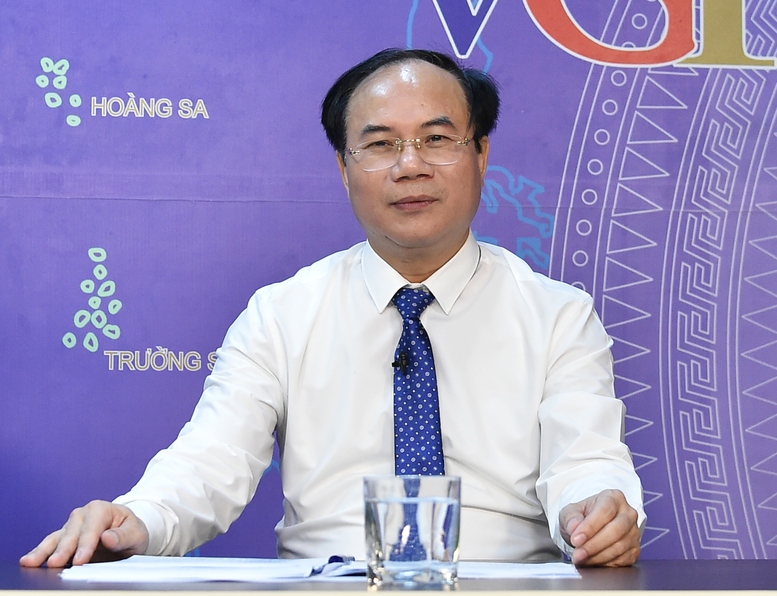
Deputy Minister of Construction Nguyen Van Sinh analyzed the significance and highlights of Resolution 201/2025/QH15 on piloting a number of specific policies and mechanisms for social housing development - Photo: VGP/Duong Tuan
Although some important results have been achieved as mentioned above, the development of social housing still has some shortcomings and limitations. Some localities have not really paid attention to the development of social housing; have not included social housing development targets in the local annual and 5-year socio-economic development plans; and have not established a Steering Committee for social housing development.
The number of completed projects has not reached the target. Some social housing projects have started but have not been implemented or are being implemented behind schedule.
Although localities have allocated large land funds, sufficient in quantity, to develop social housing, the "quality" of this land fund is still not guaranteed. Many social housing plots are planned and arranged inappropriately, in places far from the center, lacking connections in technical infrastructure and social infrastructure, so they cannot be put into use immediately; slow site clearance work leads to the failure to hand over the site to the investor, affecting the project progress.
The implementation of social housing investment projects still faces many obstacles in terms of procedures and processes that must be followed as in a normal commercial housing project. Procedures related to determining investment policies, selecting investors, granting construction permits, determining selling prices, and selecting home buyers still face many shortcomings. These are limitations and shortcomings that have been identified in recent times.
To remove difficulties and promote the development of social housing, ensuring the investment target of at least 1 million social housing apartments by 2030 (a certain amount must be completed by 2025), the Government and the Prime Minister have issued many drastic instructions, requiring the review of difficulties and proposing solutions.
Reduce hundreds of days of procedures
In that spirit, the Ministry of Construction has proactively advised, submitted to the Government and then submitted to the National Assembly for consideration. It is very gratifying that on May 29, 2025, the National Assembly passed Resolution No. 201 on piloting a special mechanism for developing social housing. This can be considered a breakthrough resolution, aiming to remove the remaining procedures that hinder the investment process in developing social housing, as well as solving the difficulties arising from practice.
Resolution No. 201/2025/QH15 includes a number of specific mechanisms and policies for social housing development, specifically: (1) National housing fund; (2) Assigning investors, approving investment policies, and assigning investors without bidding for social housing construction investment projects and housing for the people's armed forces that do not use public investment capital; (3) Establishing, appraising, approving, and adjusting detailed planning for social housing construction investment projects; (4) Procedures for investing in social housing construction; (5) Determining selling prices and rent-to-purchase prices for social housing; (6) Housing conditions to enjoy social housing support policies; (7) Renting social housing and workers' accommodation in industrial parks; (8) Compensation, support, resettlement, investment in technical infrastructure systems, and creating land funds for social housing development.
Among them, some notable mechanisms and policies are the establishment of the National Housing Fund. Accordingly, the National Housing Fund is a non-budgetary state financial fund, operating not for profit; including: the central housing fund established by the Government, the local housing fund established by the provincial People's Committee.
The Fund's objective is to create capital to invest in the construction of social housing, invest in the construction of technical infrastructure and social infrastructure of social housing projects, create social housing for rent, and housing for officials, civil servants, public employees and workers to rent.
Next is to cut down and reform administrative procedures in investment procedures for social housing construction with the goal of cutting down and reforming administrative procedures, strongly shifting from pre-inspection to post-inspection, associated with strengthening supervision according to the direction in Resolution No. 68-NQ/TW dated May 4, 2025 of the Politburo.
Accordingly, the Resolution has reduced and reformed the following administrative procedures: (1) Not implementing the bidding procedure to select investors, the procedure for approving investment policies according to the provisions of the law on investment but implementing the assignment of investors without bidding. Accordingly, about 200 days, equivalent to about 70% of the implementation time compared to current regulations, are reduced. (2) Not requiring the step of preparing, appraising and approving detailed planning tasks, thereby reducing 65 days compared to current regulations. (3) Eliminating the procedure for appraising the Construction Investment Feasibility Study Report at the specialized construction agency, thereby reducing 15 - 35 days compared to current regulations. (4) No open bidding process is required for contractor selection packages in construction activities, but a shortened bidding process is applied, thereby reducing 45 - 105 days compared to current regulations. (5) Exemption from construction permits for cases applying sample designs and typical designs, thereby reducing 20 - 30 days compared to current regulations. (6) No requirement for appraisal of selling prices and rental prices of social housing at provincial-level professional agencies, but the investor shall construct and approve the project himself; after completion and handover for use, the investor shall be responsible for conducting audits, finalization and sending the dossier to provincial-level professional agencies for inspection. Accordingly, this regulation reduces at least 30 days compared to current regulations.
In order to promptly institutionalize Conclusion No. 127-KL/TW of the Politburo and the Secretariat and Conclusion No. 137-KL/TW of the Politburo, the Resolution has supplemented the social housing support policy, accordingly: (1) Regulating the conditions for enjoying social housing support policies for subjects affected by the organization and rearrangement of administrative units; at the same time, giving the locality the initiative to consider and evaluate according to travel time, traffic infrastructure conditions, regions... to determine the subjects eligible for the policy, creating favorable conditions for accommodation, close to the workplace. (2) Expanding the subjects to include: enterprises, state agencies, political organizations, socio-political organizations that are allowed to rent social housing to arrange for their cadres, civil servants, public employees, and workers to live, creating conditions for cadres, civil servants, public employees, and workers to work with peace of mind.
With the breakthrough contents and special mechanisms of this Resolution, the National Assembly also agreed to bring this Resolution into effect early, from June 1, 2025.
Dr. Nguyen Sy Dung: The new resolution of the National Assembly contributes to unlocking all three resources of land, finance, and institutions. We are very impressed, with this resolution we can eliminate more than 1 year of time and cost.
Source: https://baochinhphu.vn/tong-thuat-toa-dam-dot-pha-de-phat-trien-nha-o-xa-hoi-102250605123911155.htm







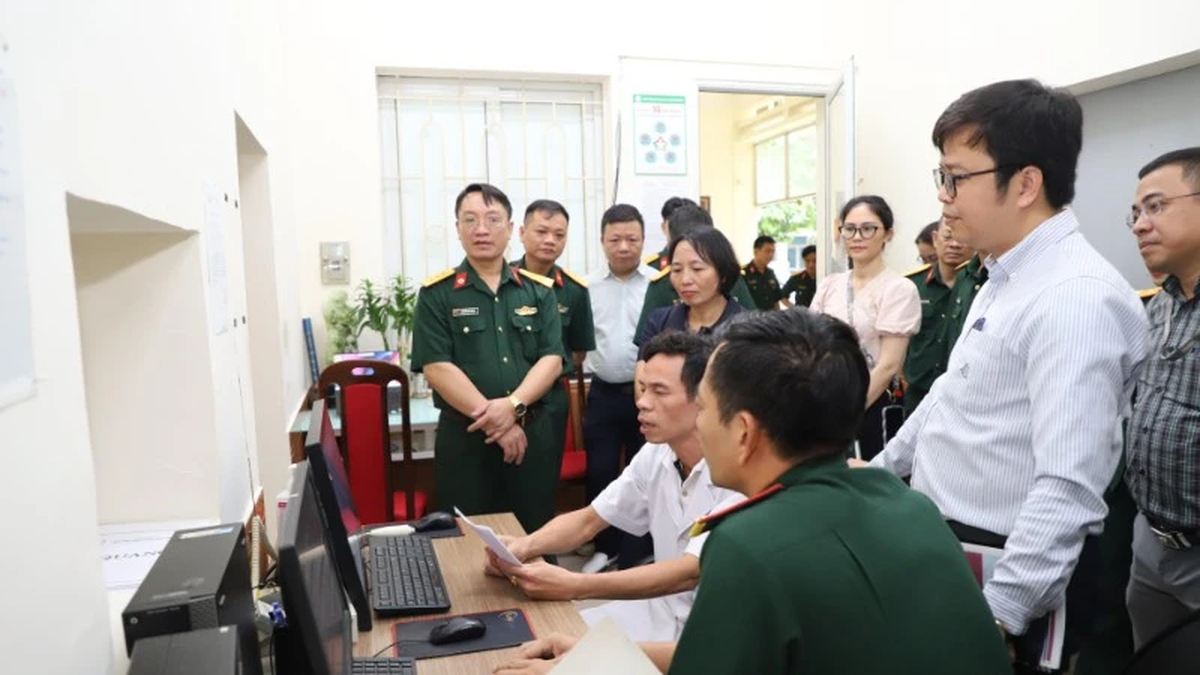















![[Photo] Prime Minister Pham Minh Chinh attends a special art program called "Hanoi - From the historic autumn of 1945"](https://vphoto.vietnam.vn/thumb/1200x675/vietnam/resource/IMAGE/2025/8/15/c1c42655275c40d1be461fee0fd132f3)

![[Photo] The special solidarity relationship between Vietnam and Cuba](https://vphoto.vietnam.vn/thumb/1200x675/vietnam/resource/IMAGE/2025/8/15/5f06c789ab1647c384ccb78b222ad18e)

![[Photo] Firmly marching under the military flag: Ready for the big festival](https://vphoto.vietnam.vn/thumb/1200x675/vietnam/resource/IMAGE/2025/8/15/86df2fb3199343e0b16b178d53f841ec)

![[Photo] Binh Khanh Bridge Ho Chi Minh City is ready to reach the finish line](https://vphoto.vietnam.vn/thumb/1200x675/vietnam/resource/IMAGE/2025/8/14/b0dcfb8ba9374bd9bc29f26e6814cee2)

![[Photo] Prime Minister Pham Minh Chinh talks on the phone with Cambodian Prime Minister Hun Manet](https://vphoto.vietnam.vn/thumb/1200x675/vietnam/resource/IMAGE/2025/8/15/72d3838db8154bafabdadc0a5165677f)





















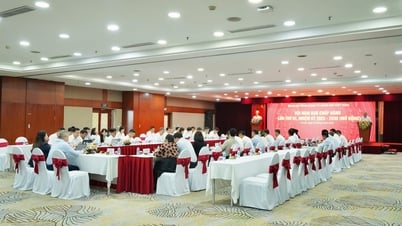




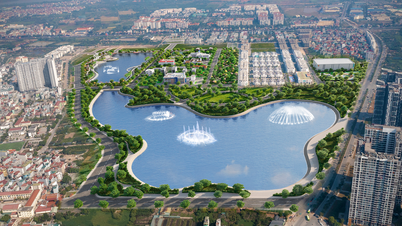
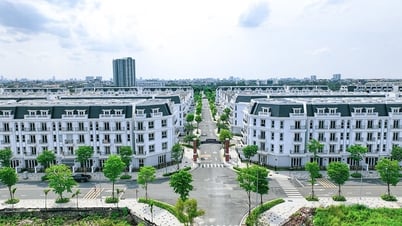


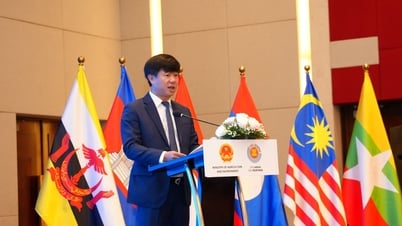

![[Photo] President Luong Cuong receives Finnish Ambassador to Vietnam Keijo Norvanto](https://vphoto.vietnam.vn/thumb/402x226/vietnam/resource/IMAGE/2025/8/15/9787f940853c45d39e9d26b6d6827710)







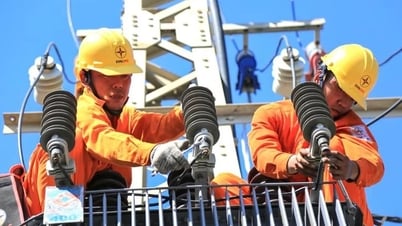






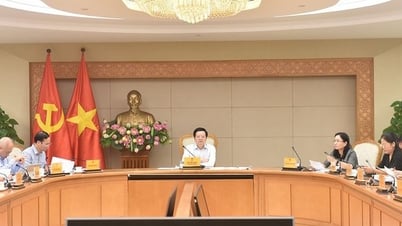





















Comment (0)